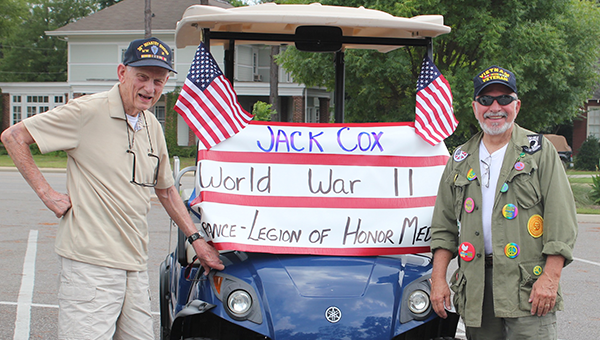What would Atticus say?
Published 12:00 am Saturday, October 19, 2013
Harper Lee, the celebrated Alabamian who wrote the Pulitzer Prize-winning novel, To Kill a Mockingbird, was much in the news lately when she filed suit against the son-in-law of her former agent, claiming he had failed to protect her copyright.
Initial stories made it sound as if an elderly woman (Lee is 87) had been hoodwinked by a New York City slicker.
The resolution of that suit garnered much less ink. In September, a federal judge dismissed the case. A spokesman for Ms. Lee said the author was satisfied with the resolution of the case. The defense attorney in the case said the nature of the case had been misconstrued and that Ms. Lee’s royalties had never been in danger.
Thursday, Harper Lee was made headlines again, this time suing her hometown, or more specifically, the Monroe County Heritage Museum, alleging that it is exploiting her trademark and personality rights.
The museum generated about a half million in revenue in 2011, and the author objects to claims made in IRS documents that its mission is “historical.”
“Historical facts belong to the world,” notes the lawsuit, “but fiction and trademarks are protected by law.”
In Mockingbird, Atticus Finch defends an African-American man accused of rape. Among the alleged unauthorized uses of her trademark is the way the museum is advertising its venue: “Restored to its 1930s appearance, our courtroom is the model for Harper Lee’s fictional courtroom settings in To Kill a Mockingbird. It’s now one of the most recognized courtrooms in America because of the popular film version of the book.”
Old-timers around Monroe-ville say Mocking-bird, was based on an actual case. Scratch the surface, and the work of fiction probably could be based on any number of cases in many Alabama counties. Witness Alabama’s recent posthumous pardon of the Scottsboro Boys.
It is an interesting debate, whether the museum is selling fiction or history.
As I thumbed through my worn and yellowed paperback copy, rereading favorite selections, I thought someone should say to Ms. Lee, “Do you really think so?”
The narrator in Mockingbird called it Atticus Finch’s most dangerous question,“ ‘Do you really think you want to move there, Scout?’ Bam, bam, bam, and the checkerboard was swept clean of my men. ‘Do you really think that, son? Then read this.’ Jem would struggle the rest of an evening through the speeches of Henry W. Grady.”
In an improving economic climate, Monroe County has 12.2 percent unemployment.
It is difficult for me to imagine that the person who wrote the character of Atticus could begrudge Monroeville the tourism begat by Mockingbird, and to a lesser degree, by promoting Truman Capote’s work.
What would Atticus say?



